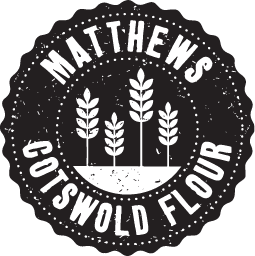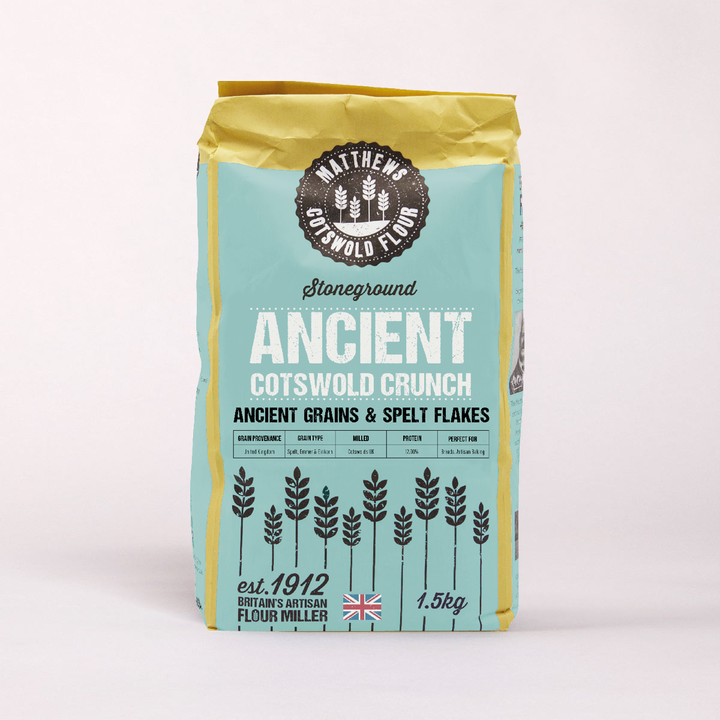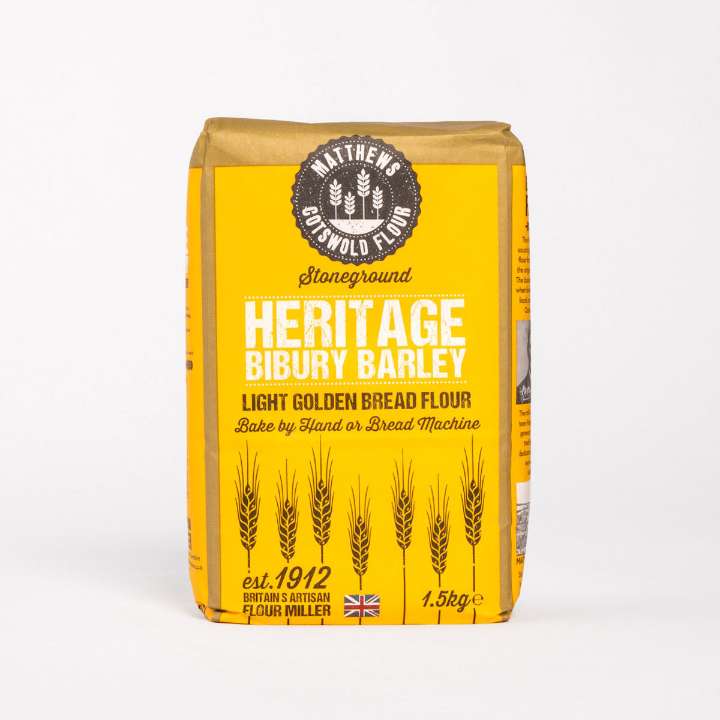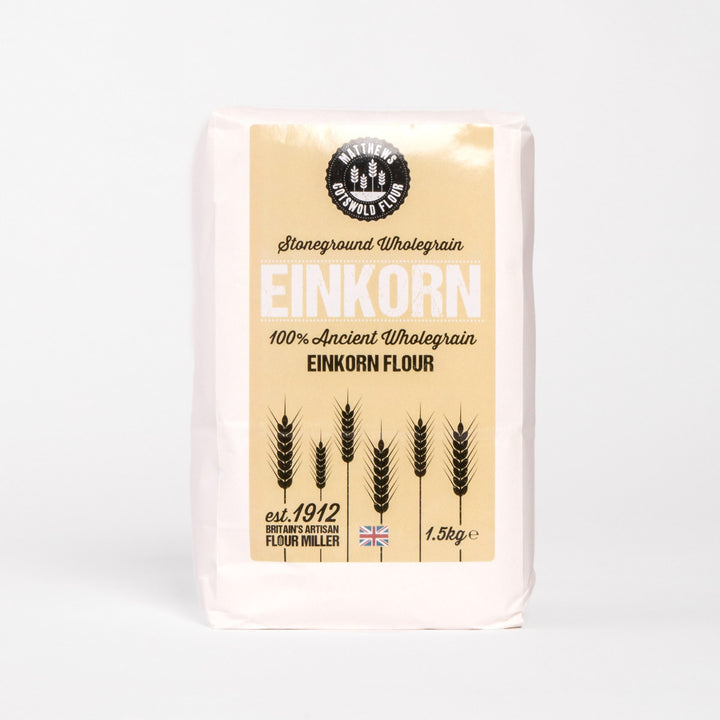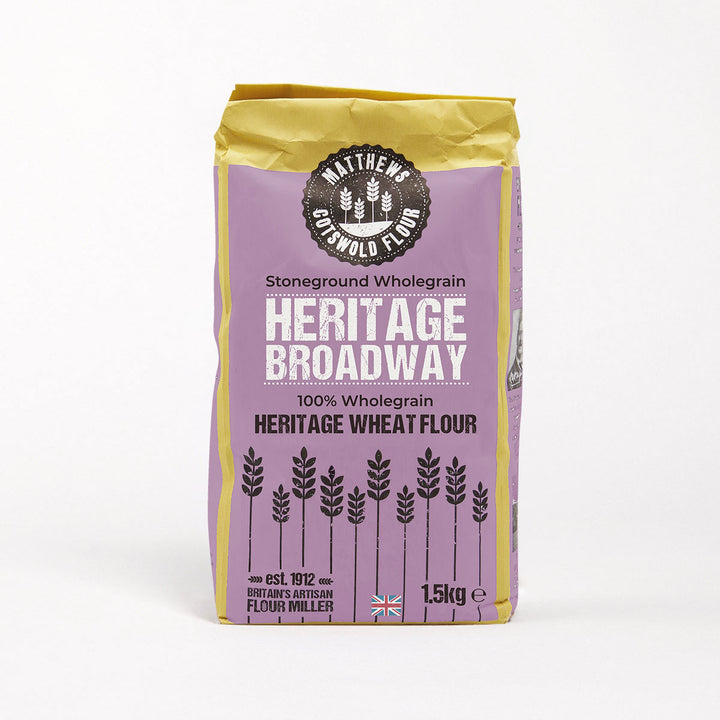Which flour should I use for Sourdough?
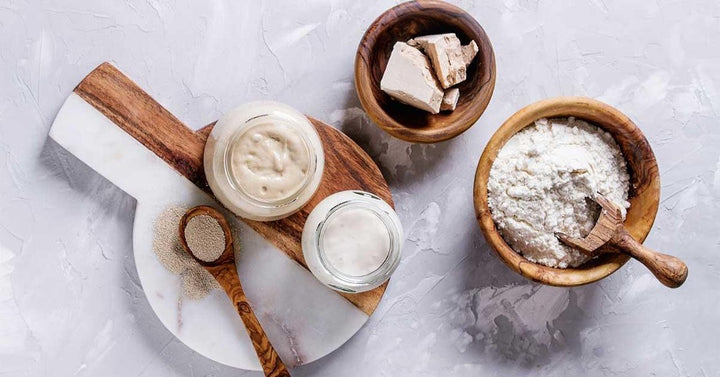
Starch and sugar is what microbes feed on. Glutinous flours, such as Churchill Flour or our Strong White Bread Flour combined with spelt flour, rye flour and wholemeal flour, tend to work best for producing sourdough. In this blog post, we will explore five types of flour that are highly accessible and best to use to make your own sourdough! Sign up to our Super Sourdough Club and get your free downloadable Starter Journal here.

1. Cotswold Strong White Bread Flour
Cotswold Strong White Bread Flour is a popular option of making sourdough because of the flour’s versatility and protein level. You can use Cotswold Strong White Bread Flour to bake a variety of goods such as bread and rolls.
Plain flour is also rich in protein and has higher protein content than regular content which is great for making sourdough. The more protein you have in your flour, the more gluten can be developed in your dough.
Low protein flours are more suitable for making crumblier textured goods, such as cookies or pastry. Higher protein flours are brilliant for producing chewier foods such as breads. Higher protein flours make sourdoughs that are easier to knead and shape, and will produce brilliant loaves of bread that have good structure and texture.
2. Churchill Bread Flour
Churchill Strong White Bakers Flour is an excellent choice for sourdough starters because it is abundant in protein. This flour contains a 12.8% protein and has more gluten content than plain flour. As mentioned above, more gluten means increased capacity to withstand the expansion of carbon dioxide as a sourdough matures, trapping gas more easily. This helps sourdough bread have more rise when baked.
3. Wholemeal Flour
Wholemeal flour includes whole grain of wheat, including the bran, endosperm and germ. Since this flour type is minimally processed when you compare it with plain flour, wholemeal flour is loaded with nutrients and potential microbes, providing faster fermentation for a starter.
That said, the abundance of bran can inhibit gluten development. The tiny bits of bran are sharp and act like razor blades, mechanically disrupting the bonds formed in a gluten matrix. Obstructed gluten development means your bread might not rise as high, retain its shape or effectively trap gases. Bran is also high in fiber, which makes whole wheat flour more water-absorbent than processed white flour, which results in stiffer bread doughs.
4. Rye Flour
Rye flour is another popular option for sourdough starters. Naturally rich in amylases, nutrients and microbes, this cereal flour enables a starter to quickly convert sugars for faster, more efficient fermentation. Compared to wholemeal flour, rye flour is said to be the most nutrient and amylase-dense option for a sourdough starter. Overall, it has a lower gluten protein content than wheat flour, which means that rye flour produces slack, sticky and dense doughs. Rye flour also contains pentosans, five-carbon sugars that absorb water and can also make doughs sticky and gummy. In addition, rye and rye flour are high in gliadin but low in glutenin, which also contributes to the viscous and sticky texture of rye-flour doughs. Overall, rye flour’s vast fermentative potential is a powerful tool that can result in tall, flavorful and aesthetically pleasing sourdough bread.
5. Blended Flour
Blended flours such as our Stoneground Wychwood Oat Blended Flour and Stoneground Cotswold Spelt and Rye Flour are brilliant for producing sourdough starters because they produce sourdough starters that match your preferences for activity and flavour. For example, Stoneground Cotswold Spelt and Rye Flour is a blend of Wholegrain Cotswold Rye flour and Cotswold Light Spelt flour. This blended flour produces a lighter wholemeal blend while delivering a mild, nutty dark flavour.
You can also make your own blended flour. For example, you can mix 90% rye flour and 10% bread flour to produce the taste and texture you prefer.
Making your sourdough starter is absolutely fun but it can be somewhat tricky. Finding the right flour to ensure that your sourdough starter ferments properly and the bread rises to the size you want can be challenging. By using the five flour types above as a starting point, you will ensure that your sourdough produces bread that delivers the right texture, colour and size!
Ready to make your own sourdough starter? Shop our wide selection of flour at our online flour shop!
← Older Post Newer Post →
